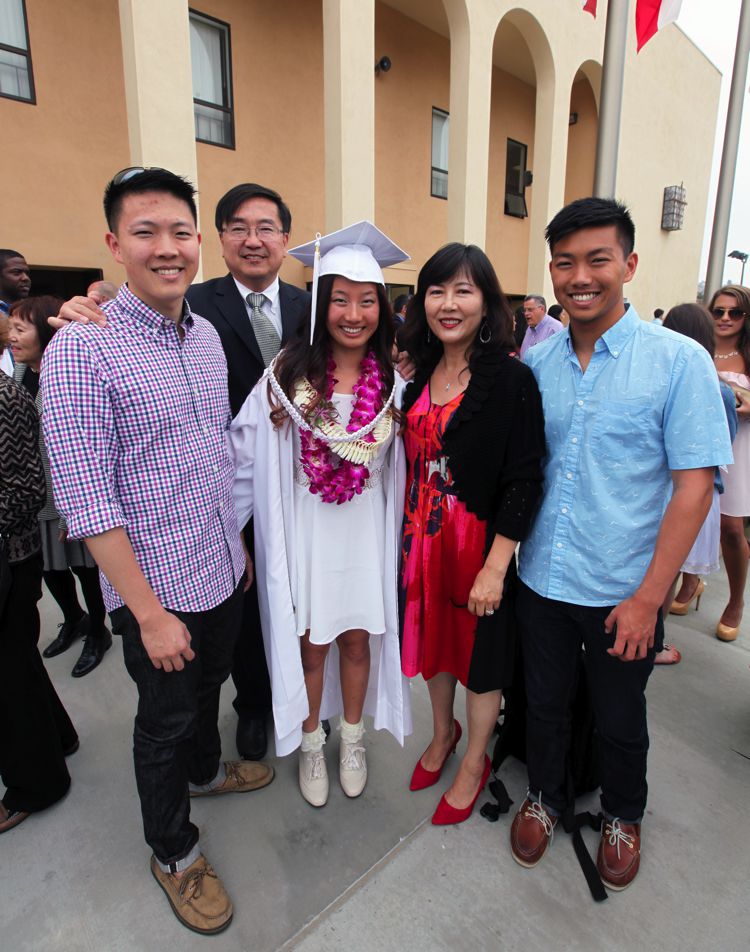My parents voted for Donald Trump, but they are not uneducated (as many in California would say).
When I think of a Trump supporter, I picture a white male with questionable values. But I also think of my well-educated immigrant parents. With $40 in their pockets, they came to America in 1984 in hopes of creating a better future for my brothers and me. My baba (father) worked in a textile factory as a teenager. They both learned to speak English fluently. They attended Peking University, one of the top schools in China. After moving to the U.S., they attended Baylor University in Texas to study medicine. They did their medical residencies in St. Louis, Missouri. When I turned five, they packed our lives into a tan minivan and drove west to San Diego, California. Fighting to raise me in an environment where I could be supported in every way takes intelligence and education — words that are disassociated from “Trump supporters” in places like the west coast.
My parents love me and I love them too, but loving them has been extra hard post-election. I have yet to reconcile the fact that they support both me and a man who stands for everything I stand against: xenophobic, homophobic, racist rhetoric. As much as I want to scream, “He’s a bully! You’re wrong!” to their faces, I cannot even bring myself to call them on the phone, let alone see them during Thanksgiving break. Why can’t they understand what “American” means to me within my Chinese-American identity? Am I disrespecting my parents’ years of, as baba says,”bloody hard work” by attending an anti-Trump protest in downtown LA I find cathartic?
Trump’s presidency has been a green light for hate crimes against the Asian American community. The nausea is unyielding. But to my parents who lived through The Cultural Revolution, America does not seem like a place worth complaining about. America was an escape for my parents. Words like hegemony, white feminism and systematic racism may be standard in my vernacular, but this jargon is not something my parents know and value. It is not as imperative to their sense of self-worth as it is to mine.
“Emily, wake up. I hope you are not on the street tonight. Please don’t let your hard working dad down,” my baba said via WeChat (the messenger app of China).
He thinks Trump will guarantee change while Clinton as president would have just continued supporting “cancerous thinking” of “lazy” Americans. He found the reign of Obama and Clinton similar to that of Mao Ze Dong, probably because the democratic party’s distaste for the wealthy reminds him of communism.
In a stupor, I read in my family’s group chat a message from my mama saying she thinks Trump does not “actually hate women.” She justified this message by saying “he has had relationships with several pretty models and married three times.” In her mind, Trump is probably a successful business man who signifies his love for women through marriage.
I know that my political alignment has already created a fissure in my family. But I do not think that is a bad thing. We need politics to reveal our ideologies so that we can have productive dissonance in our families. I think this dissonance is what makes family “family.” In response to my parents’ political views, I have been forced to adopt an open mind— hopefully they will do the same.
Having pro-Trump parents, I am corralled into difficult dialogue that ultimately allows me to see both sides of the spectrum. Yet by embracing my parents, I can’t help but feel I am simultaneously embracing racism. Despite our political differences, I am doing my best to love through difference.
While I feel like I’m going through the worst break up ever (did Democracy just dump me?), my parents are letting out a sigh of relief. I know their immigrant hustle is something I will never understand. We metaphorically and literally are approaching the election results from different places: my parents are Chinese and I am Chinese American.
I know this strife is not mine alone. In the wake of the 2016 election, many of us (especially those of us who are children of immigrants) have grappled with honoring our parent’s hard work while staying true to our own beliefs. For those who are living with familial political dissonance, it is important to remember that hearing both sides of the political spectrum is a rare opportunity. Maybe the best thing we can do right now is to admit that being family means having awkward small talk at the dinner table knowing that you all voted for radically different candidates. Having immigrant parents, my whole life has been about learning how to love across cultural and generational gaps. Now that Trump is president, I am reminded and challenged to love across said difference because that is what family means to me.
Emily Gao is a Critical Theory and Social Justice major. She can be reached at egao@oxy.edu.
![]()































